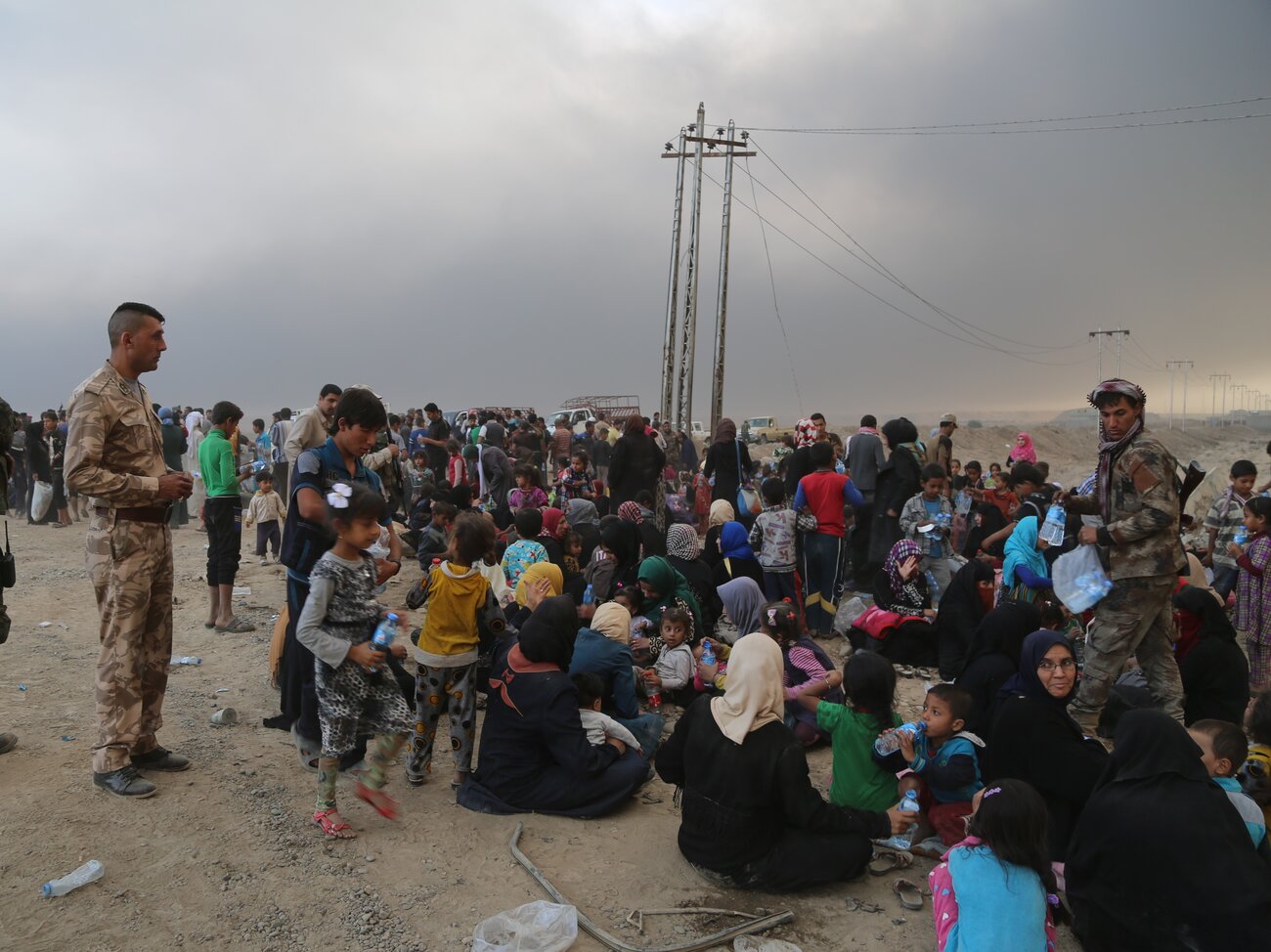Living in Fearful Suspense
"Every minute passes like a year."
"We have mixed feelings. We are happy that we will eventually be liberated and afraid of what will happen afterward."
Sunni Iraqi resident of Mosul
"The recent airstrikes are really shaking the ground and houses. My wife prays and recites verses from the holy Qur'an when airstrikes start, while children cry."
"We are afraid that one of those airstrikes might hit us."
Sunni Iraqi resident of Mosul
"A lot of people are going to flee."
"A lot of them are extremely fearful of what the battle might bring."
Berkis Wille, senior Iraq researcher, Human Rights Watch
 |
| Volunteers of Kurdish Peshmerga fighters, some shown here in 2014, are among those moving in to recapture Mosul, but a revenge drive is building for after the Islamic State is driven out. File Photo by Mohammed al Jumaily/UPI |
The combined forces converging on Mosul are not all sympathetic to the civilians who have been trapped in the city, the second largest in Iraq, that was captured over two years earlier by the jihadist Islamic caliphate of ISIL. That they are Sunni Iraqis, and that ISIL represents Sunni jihadi terrorists makes them complicit with ISIL's holding of Mosul and other Sunni-majority towns, in the perception of Shiite militias and the Shiite Iraqi military.
That their status is seen as uncertain is understandable, fearing that because they remained in Mosul while ISIL ruled the city that they will be held in contempt and suffer the vengeful consequences of being Sunni in a city liberated from Sunni terrorists by mostly Shiite militias. The Kurdish Peshmerga, sympathetic to Christians, Yazidis, Shiites, are themselves mostly Sunni, but they have been given orders not to enter Mosul, but to remain on its outskirts.
The residents of Mosul know full well what occurred in those Sunni areas earlier liberated by Shiite militias. Ramadi was reduced to rubble when it was retaken from Islamic State, and Fallujah's liberation heralded a paroxysm of of human rights violations where hundreds of men escaping the city confines were detained, tortured, or simply 'disappeared'. So the immediate concern of the residents of Mosul is their safety while their city is being aerially bombarded.
When, as is inevitable, the 30,000 combined forces opposing the occupation of Mosul by ISIL, manage to rout the jihadis from the tunnels, alleyways, booby-trapped buildings and infiltration of civilian enclaves, there will rise up the second phase of concern, equally fearful to the first; that they will be held responsible for whatever ISIL accomplished in its bloody campaign, and pay for their Sunni connection with their lives.
The coalition, attempting to forestall a mass exodus of Mosul residents, difficult to control and to accommodate, has dropped leaflets instructing people to remain where they are, and inside their homes. At the very same time, human rights groups witness to this particular historical battle in a landscape fraught with horrendous potential, are concerned that despite instructions, many residents will flee Mosul to areas yet held by ISIL, fearing much worse treatment at the hands of those who 'liberate' them.
 |
As the operation to retake Mosul continues, Iraqis
fleeing ISIS-controlled areas of the city arrived Tuesday at the nearby
town of al-Qayyarah, secured by the Iraqi army. Anadolu Agency/Getty Images
|
Labels: Conflict, Iraq, Islamic State, Kurds, Mosul, Shiites, Sunnis

<< Home